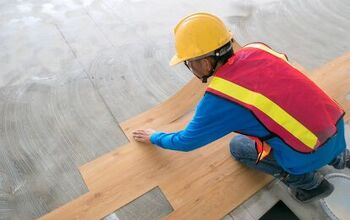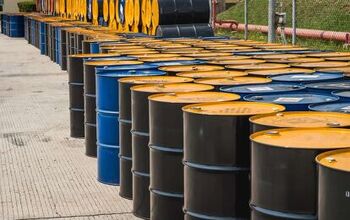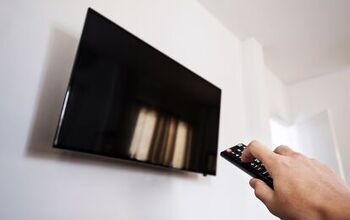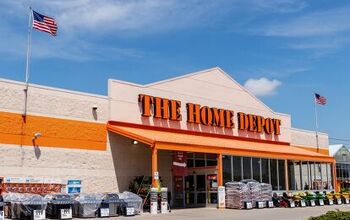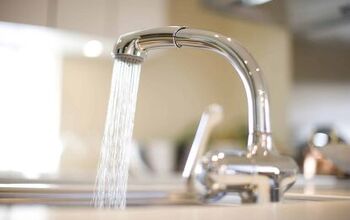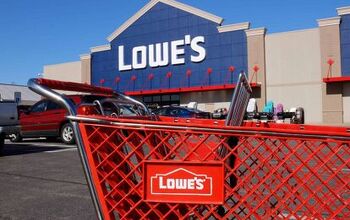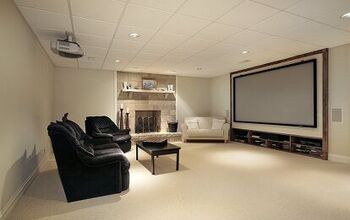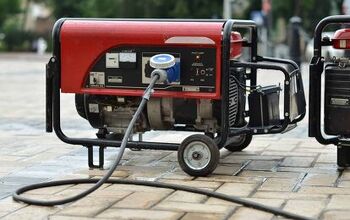EVP Vs. LVP Flooring: Which Is The Better Choice?

Choosing between flooring materials is a tough and expensive decision to make. Flooring is an important part of any home that is as functional as it is stylish. So, what is better, EVP flooring or LVP flooring?
EVP flooring is more durable, stylish, and water-resistant than LVP flooring. LVP flooring is easy to install but it is less forgiving than EVP flooring and can damage the subfloor. There are more style options for EVP flooring than LVP flooring that can mimic natural wood or stone.
Both EVP and LVP flooring have their pros and cons that make them unique. While they are similar, EVP and LVP flooring are not interchangeable. Follow along as we settle the important debate: EVP vs. LVP flooring.
Do You Need to Hire a Flooring Contractor?
Get free, zero-commitment quotes from pro contractors near you.

EVP Flooring
Engineered vinyl plank, or EVP, is a thick flooring material that mimics natural materials like wood and stone. The appearance of EVP is almost identical to natural stone or wood, but it lacks the downsides of natural materials. EVP flooring generally consists of 5 layers that measure nearly 8mm thick.
The clear protective layer that EVP flooring has helps to protect the surface from damage. EVP flooring is also highly water-resistant because it features a vinyl core layer. One of the biggest benefits of EVP flooring is the unique and absorbant backing layer that helps absorb sound in your home.
Pros
EVP flooring is infinitely useful and can make all the difference in your home. It is just as classy looking and convincing as real wood or stone but is a more reasonable alternative to such materials. The pros largely outweigh the cons when it comes to vinyl plank flooring, such as:
- Water-resistant
- Absorbs sounds
- Cheaper than wood or tile
- Can fit over tile
- Easy to install
It is worth noting that EVP flooring is also environmentally friendly and can earn you a LEED certificate. The easy installation, pleasant appearance, and unique 5 layers make EVP flooring an excellent choice for your home.
Cons
There is no such thing as a perfect flooring material, even if EVP flooring comes close. Luckily, there are few downsides to EVP flooring, such as:
- Doesn’t improve home value like stone or hardwood
- Requires you to prep the floor generally
- Susceptible to scratches
- Can fade in the sun
The scratch-resistant surface layer on EVP flooring is effective, but it doesn’t make the planks invincible. You can still scratch EVP flooring and cause cosmetic damage. It is possible to put EVP flooring over existing tiles, but you may need to prep the floor before you install it.
LVP Flooring
Luxury vinyl plank flooring, or LVP, is an affordable flooring material that is highly waterproof. The main appeal to LVP flooring is that you can easily install it without professional help. You can peel and stick LVP flooring to quickly install it without too much preparation.
Pros
Countless homeowners choose LVP flooring because of how affordable and easy it is to install. LVP flooring is a great option for homeowners looking to save money and avoid difficult installation. There are several reasons that LVP flooring is as popular as it is, such as:
- Easy to install
- Compatible on even or uneven ground
- Cheap
- Variety of options
- Flexible cork layer
Many of the benefits of LVP flooring are similar to the benefits of EVP flooring. Both flooring options vary in installation and performance, but LVP is easier to install than EVP flooring.
Cons
LVP flooring is popular and effective, but it isn’t a perfect option. It may be easy to install LVP flooring, but it is much less forgiving than EVP flooring. That is because it is easy to spot imperfections with LVP flooring amongst other downsides, such as:
- Can damage the floor beneath
- Difficult to remove
- Cheap options are less water-resistant
- Easy to see imperfections
It is hard to rely on LVP flooring’s water-resistant nature because it isn’t always accurate. Some LVP flooring options are more water-resistant than others, but it’s rarely as effective as EVP flooring. Be careful anytime that you remove LVP flooring because it can potentially damage the floor beneath the planks.
Which is Better?
EVP flooring is better than LVP flooring in terms of durability, water resistance, and appearance. Both EVP and LVP flooring can mimic stone or wood, but EVP does it more convincingly. Let’s take a look at the main reasons that EVP flooring is better than LVP flooring.
Uneven Floors
EVP flooring looks better on uneven floors than LVP flooring because it is more forgiving. It is ideal to even out your floors before you install EVP or LVP flooring, however. You can easily notice imperfections on uneven floors with LVP flooring, but that isn’t as much of a problem with EVP.
EVP flooring can work over uneven floors, but it is ideal to replace the subfloor if it is bad. That way, your vinyl planks will lay evenly and it won’t put as much stress on them.
Waterproofing
The waterproof surface of EVP flooring makes it the go-to choice for many homeowners. LVP flooring is somewhat water-resistant, but nowhere near as much as EVP flooring. Prolonged moisture or spills can easily damage LVP flooring and make it come loose over time.
LVP flooring is supposed to be waterproof, but cheap options can rarely withstand moisture. However, that is not a concern with EVP flooring which is consistently waterproof.
Options
Both LVP and EVP flooring come in a variety of options, but EVP flooring has more to choose from. You can find several styles of EVP flooring that convincingly replicate stone or wood. EVP flooring is a great way to cheaply make your home look better without spending as much as you would on natural wood.
Place Over Tile
If you have tile in your home that you do not want to pull up, then engineered vinyl plank is the option you need. If you were to install LVP over tile, then you would eventually see the tile through the LVP flooring.
Essentially your only option to install LVP over tile would be to fill the grout lines, and this is an unnecessary added expense. The better option is to pay a bit more for EVP and have a flat, strong, surface.
Asbestos Tile
If you have asbestos tile, then EVP is the only option. LVP cannot be glued over asbestos tile because it will cause a health hazard if it is ever ripped up in the future. EVP provides encapsulation for asbestos tile and leaves it undisturbed.
However, you want to remove the asbestos tile instead of keeping it in your home. While it’s possible to do that alone, you’ll want to hire a professional instead because this is a dangerous project.
EVP Flooring Cost
Vinyl flooring ranges anywhere from $2 to $8 per square foot. This does include the cost of installation. If you wanted to install a 200 square foot vinyl floor, you would be looking at around $800-$1,000. If you wanted to include stairs, you would be looking at a higher cost.
Related Questions
How do I clean EVP flooring?
One of the great things about vinyl floors is that they are incredibly easy to clean, and you can use almost any cleaner that you choose. Tile or laminate cleaner is mainly a good option for EVP.
How do vinyl floors stay in place?
Engineered vinyl planks are clickable, while LVP flooring is glued down. With EVP, the heavier the flooring becomes, the weight helps to hold it down. It is also typically secured around the edges with base molding.
Can I install EVP on steps?
This is possible, but typically it is not extremely safe. This is due to the fact that they are not nailed to the floor and can cause someone to slip by becoming detached. They can also look sloppy.
Do You Need to Hire a Flooring Contractor?
Get free, zero-commitment quotes from pro contractors near you.

Wrapping It Up
Both EVP and LVP are great flooring products. However, with EVP, you’ll get better results due to the product’s durability and stability.
Not to mention, you can choose from a wide variety of different colors and styles when you choose EVP. It allows you to put character into your home and create the space that you’ve always wanted.
That’s not to say LVP isn’t fantastic as well, but EVP is far more advanced than the LVP. We highly suggest, though, that you choose what’s best for you.
Related Guides

Real estate agent and copywriter, originally from California. Chloe brings her real estate expertise into her writing to create effective and helpful home guides for you! When not writing or selling homes, she spends her time as a digital nomad traveling the world.
More by Chloe Meltzer



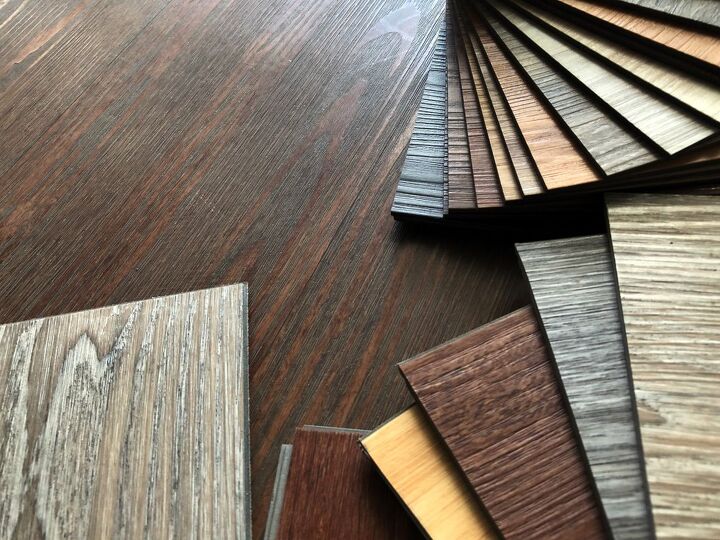






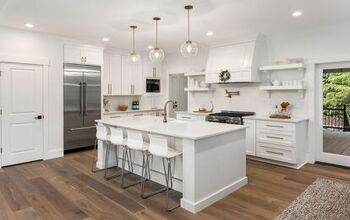
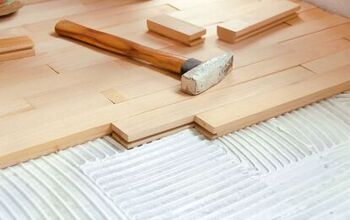
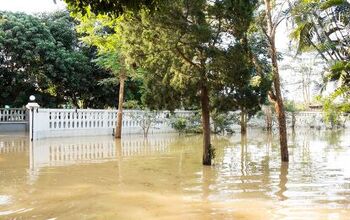
![10 Best Cordless Leaf Blowers – [2022 Reviews & Ultimate Guide]](https://cdn-fastly.upgradedhome.com/media/2023/07/31/9070789/10-best-cordless-leaf-blowers-2022-reviews-ultimate-guide.jpg?size=350x220)
